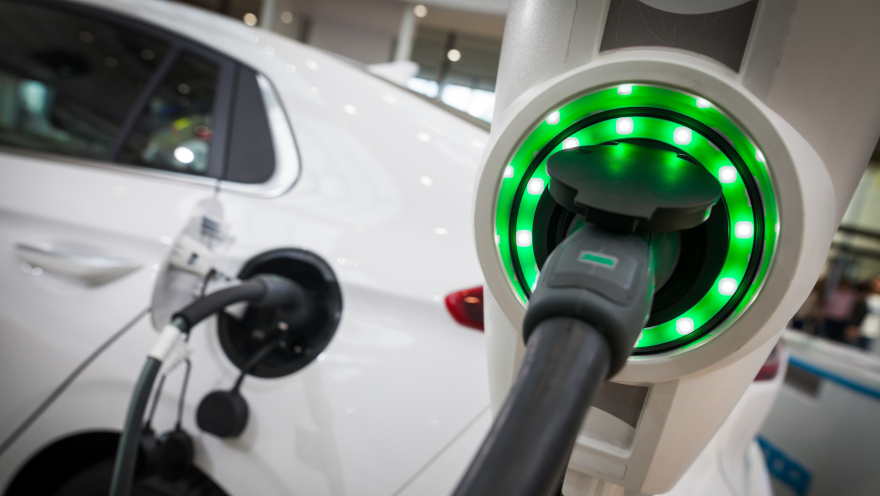Canada’s new EV availability standard set; industry begins to respond

There’s a new electric vehicle availability standard in Canada. Proponents contend it will give Canadians better access to more affordable cars and cleaner air.
The standard, announced shortly before the Christmas holiday, is in place to move the country toward the target of 100% zero-emission vehicle sales by 2035.
The interim targets of 20% of all sales by 2026 and 60% by 2030, is expected to channel supply to Canadian markets instead of going abroad, reducing customer wait times and making sure Canadians have access to the latest affordable and technologically advanced vehicles that are coming to the market in the next few years, the Canadian government said in a press release.
The new standards represent the government of Canada taking action to improve the availability of new electric vehicles across the country.
Automakers like Hyundai Canada had already begun to respond to the new standards in place shortly after the release.
Before the Christmas holiday, Steven Guilbeault, minister of environment and climate change, announced Canada has finalized its new Electric Vehicle Availability Standard to increase the supply of clean, zero-emission vehicles available to Canadians across the country.
Canada’s new Electric Vehicle Availability Standard joins it with other countries like the United States, the United Kingdom, the European Union, and more trying to put more EVs on the roads.
The standard has been in the works for two years, and it follows a “phased-in approach” in an effort to create a “gradual” switch to 100% zero-emission vehicles.
The government says the standard is just one more part of a “comprehensive plan” for an EV future.
“Zero-emission vehicles are an essential component of Canada’s low-carbon future. By making the switch, drivers are saving on their bills, ensuring clean air in communities, and supporting job-creating projects across Canada’s growing electric vehicle supply chain,” said Jonathan Wilkinson, minister of energy and natural resources, in a press release. “Today’s announcement will further support the deployment of zero-emission vehicles and associated charging infrastructure in every part of the country.”
According to the government press release, in the last quarter, one out of every eight new cars sold across Canada was a zero-emission vehicle.
In British Columbia and Quebec, which already have similar standards in place, new electric vehicles now account for one in five sales.
“Canadians are making the switch to zero-emission vehicles. Introducing the Electric Vehicle Availability Standard will ensure that Canadians have more to choose from — and more affordable options — when choosing a zero-emission vehicle,” said Pablo Rodriguez, minister of transport, in a press release. “These measures will help create jobs across Canada and bring us closer to our ambitious sales targets for zero-emission vehicles.”
The government contends switching to EVs can provide lower ownership costs over a period of time.
According to the press release, average cumulative ownership cost of an electric vehicle hatchback is $48,943; for gas-powered alternatives, the number comes in at whereas the gas-powered alternative is $82,515.
But initial purchase cost has been an obstacle for many consumers when considering a zero-emission vehicles. The government said that purchase incentives from the federal government (up to $5,000) and provincial and territorial governments (up to $7,000 in Quebec) can offset these costs.
As far as reliability goes, the government said advancements in battery technology have improved cold-weather performance and has served to ramp up battery range as well.
The government is investing $1.2 billion to build 84,500 chargers across the country by 2029. Businesses and provincial governments are teaming up on expanding EV infrastructure, as well.
“Canadians are leaders in building a sustainable transportation future, and the Government of Canada is supporting them. Across the country this year, we deployed tens of thousands of electric vehicle chargers and secured historic job-creating projects across the critical minerals and battery value chain,” said Julie Dabrusin, parliamentary secretary to the minister of environment and climate change and to the minister of energy and natural resources, in a press release. “Today’s announcement will build off that support and help ensure Canadians get access to these electric vehicles.”
Hyundai Auto Canada responds to new standards
Hyundai Auto Canada responded to the revised zero emission vehicle regulations shortly after the government issued its press release.
The company said it supports the objectives outlined in the Canadian federal government’s revisions to its light duty zero emission vehicle (ZEV) sales regulations.
The OEM tied the potential success of the program to two essential areas important to consumer adoption: charging infrastructure and ZEV affordability.
“Today’s announcement from the federal government is a step in the right direction to maintain the trajectory towards a zero-emission future. We share their vision that the future is in fully electric vehicles that produce zero emissions,” said Don Romano, president and CEO of Hyundai Auto Canada, in a press release.
“However, consumer adoption of EVs cannot solely rely on making these vehicles available to Canadians. In order to meet the government’s targets, a dedicated investment in charging infrastructure is necessary, especially for Canadians living outside of urban centers. As the second best-selling EV brand in Canada, we can make EVs accessible to many Canadians.
“However, ZEVs are currently more expensive to manufacture until the technology transition can be fully scaled and mass produced. We call on the government to continue offering Canadians financial support to bridge that transition and achieve the ZEV sales target goals outlined today,” he said.
Hyundai is on track for the goal of carbon neutrality by 2045. It plans to launch more than 17 new BEV models globally by 2030 (11 for Hyundai models and six for the Genesis luxury brand).
Its target is to secure 7% off the global EV market by 2030. To support these efforts, Hyundai is also part of a consortium of OEMs developing a charging network across North America that will help ensure the infrastructure can support this shift towards electrification.

 View The Latest Edition
View The Latest Edition

